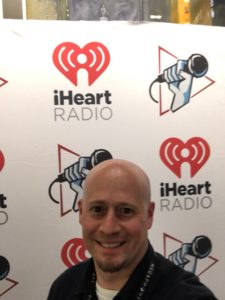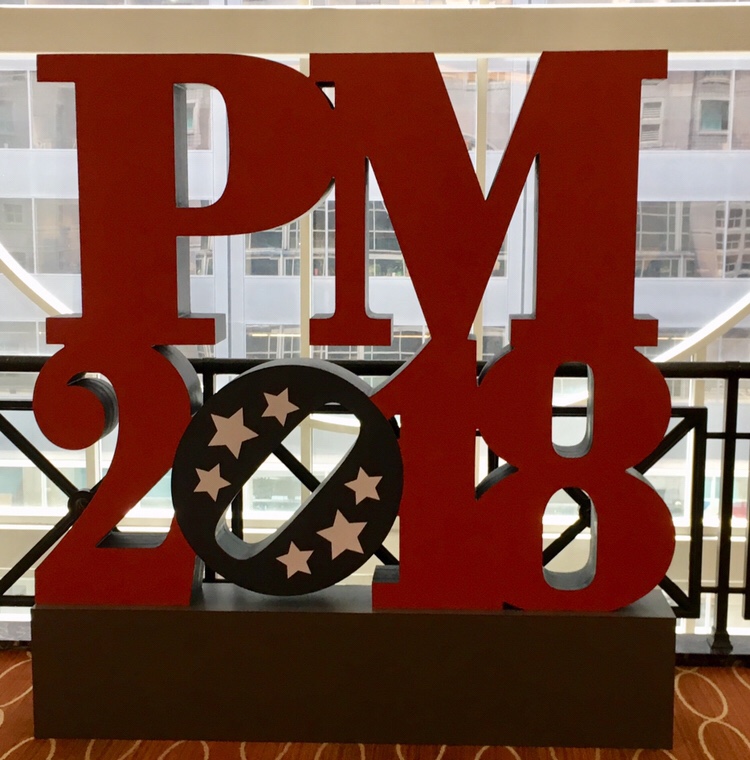Podcast Movement is the world’s largest gathering of Podcasters. Over 2,000 hosts, editors, hobbyists and radio people descended on Philadelphia last week to network and learn what’s trending in podcasting.
This was my first Podcast Movement, and it was worth every penny. I’m really glad I bought the Virtual Pass; there were several interesting sessions that ran concurrently and I could only be in one place at once. Here are some of my biggest takeaways from Podcast Movement.
Sound is the number one tune-out factor. If your audio lacks professional quality, people will not listen. Think about the early days of YouTube. People were simply thrilled to watch videos on the web. Now, if the visuals don’t meet a certain level of “watchability,” people…well, won’t.
Your interviews should be transactional. Guests should be able to get value out of the interaction too; it’s not all about you. If guests feel their time was well invested, they are more likely to be a partner and/or brand ambassador.
Podcasts are not simply a marketing tool. They are also a means to connect and create another touchpoint with your existing audience. Podcast audiences can become communities.
Apple Podcasts dominate the space at 63% of total listening. Spotify is #2 at only 9%. Forutnately, overall podcast listening will get a large boost thanks to Google. There are 2 billion Android users worldwide, and they finally have a native app to listen to podcasts on.
You don’t need a niche or audience to start with. Pat Flynn mentioned this in a keynote. Just dive in and start. Like any muscle, you’ll only improve by using it.
48 million Americans listen to podcasts, but we should be able to hit 100 million. That’s the number that will open the advertising floodgates. Unlike radio, who hold their loyal listeners close, we need to market in different ways to grow our audience. The first hurdle is destroying misconceptions.
Edison Research’s Tom Webster, in another keynote, showed a very compelling video of real people talking about why they don’t listen to podcasts. Here are the reasons, among the “non-believers.”
80% think they “don’t have a podcast app.”
62% think they use too much data.
50% think they are too long.
47% think they cost money to listen to or download.
30% think podcasts are only for educational purposes
(By the way, none of these are true.)
Two final takeaways:
I was suprised by the presence of traditional radio companies at Podcast Movement:

Radio is all in on podcasting. I have a theory on this, as someone who worked in that industry for 15 years. While news, talk, and sports radio continue to thrive, the industry removed most of the personality from music radio, at least outside morning shows. Outside Weenie and the Butt, however, most dayparts are syndicated, and we were told a long time ago to “shut up and play the music.”
This worked for a bit, until Pandora, Spotify and their friends came along. Listeners didn’t need to listen to someone else’s playlist when they could curate their own.
Why were DJ’s muzzled a decade agao? A new ratings system provided data showing that “audiences don’t like when DJ’s talk.” The flaw in this interpretation, however, was one missing word. “Audiences don’t like it when BAD DJ’s Talk.” As a result of this error, we heard less out of our compelling personalities, and now radio is looking to rebuild that intimate connection with their audience. Podcasts do this exceedingly well, and radio doesn’t want to miss the boat.
Finally, I attended Podcast Movement as an editor looking to hone my skills and network with new clients. I was happy to achieve both. Unless you have an extensive audio background, employ an editor work on your podcast to give it a professional sound. And if you’re looking at the cost of a good editor and hesitating because your revenue isn’t there, you need to come at it from another angle. How much is your time worth? Think about the four hours you’re spending with Audacity or GarageBand, painstakingly editing your show. Now imagine me plopping in front of Adobe Audition and getting it done in 90 minutes. Is your time worth the money? Is a more professional sounding product? If so, reach out. You can reach me here.

